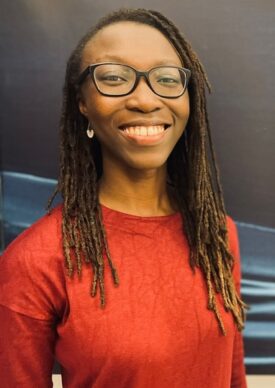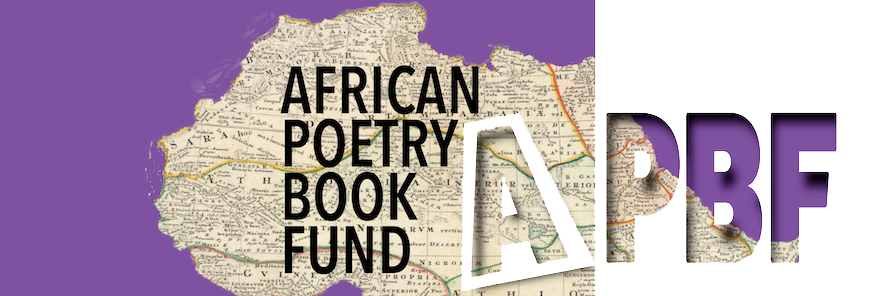The Body, Trauma & Inheritance: A Conversation with Nikitta Dede Adjirakor
To celebrate the launch of the latest in the New-Generation African Poets Chapbook Box Set series, Tisa, Tryphena Yeboah, is talking to poets whose chapbooks are included in New-Generation African Poets: A Chapbook Box Set (Tisa). This series continues with a conversation between Tryphena and poet Nikitta Dede Adjirakor. The interview was conducted via email and has been lightly edited for publication.

Tryphena Yeboah: Congratulations on being selected as part of the 2023 New-Generation African Poets series! What a wonderful time for you, and a tremendous contribution to the growing body of African poetry in the world. What are your thoughts and feelings about this news?
Nikitta Adjirakor: It’s extremely exciting. When I was initially contacted to submit some works for consideration, I was ecstatic because I never truly considered myself a poet. It was affirming when my poems were selected for inclusion in the box set.
TY: Learning to Say My Name interrogates motherhood, silence, and the body as a site of contention as well as a vessel that holds and inherits years of trauma. What drew you to these themes and how would you describe your experience reflecting and wrestling with these subjects?
NA: Over the years, I have been exploring themes such as the inheritance and processing of trauma through the body as expressed through sexuality, reproductive health and (in)fertility in different media like film and non-fiction. On a simple level, it is the silencing and stigma around reproduction or the inability to reproduce and its effects on the structure of the family that draw me to the themes. I am particularly interested in how women themselves view their bodies within this process and its wider ramifications on structural and moral challenges like medical misogyny, sexual abuse, religious manipulation and the patriarchy. What are the vivid ways in which women grapple with their bodies within these structures and what are the failings of society towards these women?
I am particularly interested in how women themselves view their bodies within this process and its wider ramifications on structural and moral challenges like medical misogyny, sexual abuse, religious manipulation and the patriarchy.
Thinking through these themes within poetry means that I was/am constantly attune to how the smallest detail can manifest these themes and provide insight into the body’s negotiation of space in society. It has made me extremely open to seeing how women move within spaces that emphasize these themes like hospitals and churches. For instance, the poem ‘Songs of Faith’ comes from how struck I was that fertility clinics and gynecological rooms often emphasize the ‘miracle’ of fertility by loudly featuring pictures of babies, thereby silencing the anguish of women with reproductive health challenges who come to these very offices for the same ‘miracle’. The pictures of babies become sites of contestation of what the woman’s body should be capable of while silencing its trauma.
TY: I would love to hear about the process of constructing your chapbook. How did you conceive of ordering the collection? Did you discover or build any particular writing habits over the time you spent creating these poems?
NA: I find this bit amusing, but I discovered re-reading my work obsessively till it sounded right. Reading it aloud enabled me to hear disconnections in the lines and recognize words that were out of place. I realized that the reading process as part of editing is also significant to the entire writing process. Reading the poems aloud helped with the construction of the chapbook because I noticed patterns I hadn’t when writing. It also helped me to recognize that the poems were unintentionally grouped into three sections – discovery, lineage and search. These patterns became the order of the chapbook and the poems began to flow into each other.
TY: As a selectee for this year’s new generation series, you have become part of the APBF African poets “family”. What does it mean to be part of a growing body of contemporary poets emerging from the continent?
NA: It is such an exciting time. My main love for APBF has been my discovery of many poets across the continent. Poets whom I might otherwise never have encountered and certainly not at the same time. The variety of themes, forms and styles that are explored in the box set singularly redefine any stereotypical idea of a monolithic African poetry. Seeing the great works that a lot of previous poets in the box sets have gone on to accomplish makes me very proud to be part of the family.
TY: What does being an African poet mean to you?
NA: I think, being an African poet is about the multitude possibilities that come with simply being an African, as the word itself includes the multiplicities of nationality, ethnicity, multilingualism, literature and many others. There is room to explore and expand. There is also a rich heritage to draw from that includes the literary practices, languages and culture. It is as much a label of origin as it is about practice.
TY: Your first chapbook is out in the world and I hope this is not too daunting of a question to ask, but I’m eager to hear what projects you’re currently working on and if you have any exciting works in the pipeline?
NA: I am slowly working my way through a full-length novel. It picks from the themes in the chapbook as the book grapples with questions of inheritance and lineage among women in a Ghanaian/Nigerian family as they search for each other. The protagonist has to meander through material inheritances as well as silenced trauma within her lineage while attempting to create a family of her own. It’s definitely a slow work in progress and I find myself enjoying the slow pace of writing. But the publication of the chapbook has encouraged me to think of the possibilities of completing a poetry book in the near future.
Nikitta Dede Adjirakor is a Ghanaian scholar and creative writer. She is currently a postdoctoral research fellow at the University of Ghana. She is the producer of the film A Thousand Needles which documents African women’s sexual and reproductive health stigmas. Her work can be seen nikittadede.com.
Tryphena Yeboah is a Ghanaian writer and the author of the poetry chapbook, A Mouthful of Home, selected by the New Generation African Poets Series. Her fiction and essays have appeared in Narrative Magazine, Commonwealth Writers, and Lit Hub, among others. She is currently a Ph.D. student at the University of Nebraska-Lincoln, studying English with an emphasis in Creative Writing.
